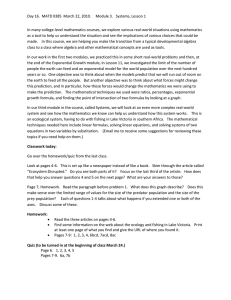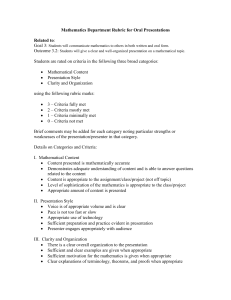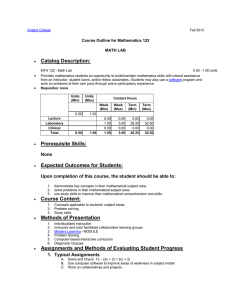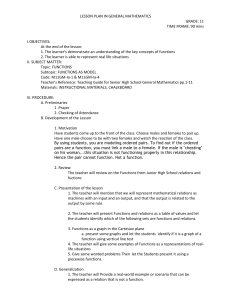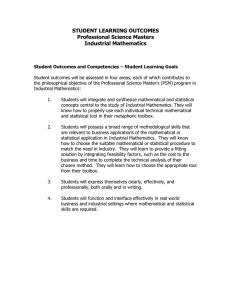Mathematics SL
advertisement
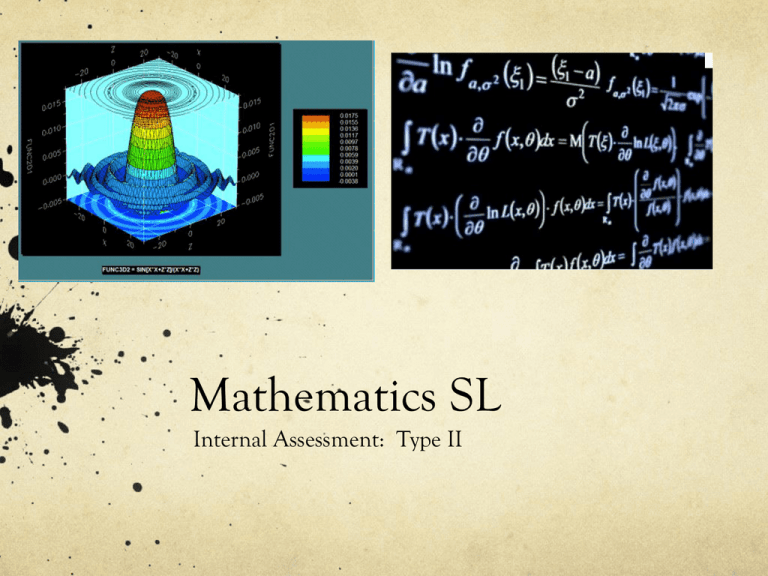
Mathematics SL Internal Assessment: Type II Portfolio Type I: Investigation (done last year) Type II: Modeling No no…….Mathmatical Modeling! Mathematical Modelling Problem solving - often process oriented Mathematical modeling – often requires an experimental approach Important Skills Translating the real-world problem into mathematics Constructing a model (equation…..often from collected data) Solving the problem Interpreting the solution in the real-world situation Recognizing that different models may be used to solve the same problem comparing different models Identifying domains or ranges of validity of the models Identifying the possible limits of technology Manipulating data The model should “predict” the near future! Structure of a Type 2 IA 1. An introduction to describe what the task will be about. 2. a statement of what the variables/parameters are, what symbols will be used to represent them, and what units will be used to measure them. 3. a graph of the data and a discussion of possible functions which might reasonably model the data. 4. an analytic development of the values of the parameters in the model(s) chosen. 5. a graph of the data and the model(s) generated. 6. tweaking of the model(s) using regression tools to generate other values of the parameters, with a discussion of how well the various models fit the data. (note: You should say more than “it fits pretty good” !!!!!! Structure of a Type 2 IA 7. discuss limitations on the values of the variables. 8. address any additional issues presented in the task. 9. Perhaps apply the model to other situations, or infer what it tells you about future trends. NOTE: You should be able to read your IA, from start to finish, and understand what it is about WITHOUT having to look back at the original task. What if I did not turn in/ goofed up my IA last year Type 1 (11th grade) Type 2 (now) BEST 2 GO TO IB! Choose to re-do a 1 or 2 Assessment See pdf document for Rubric Hand out body mass index example
